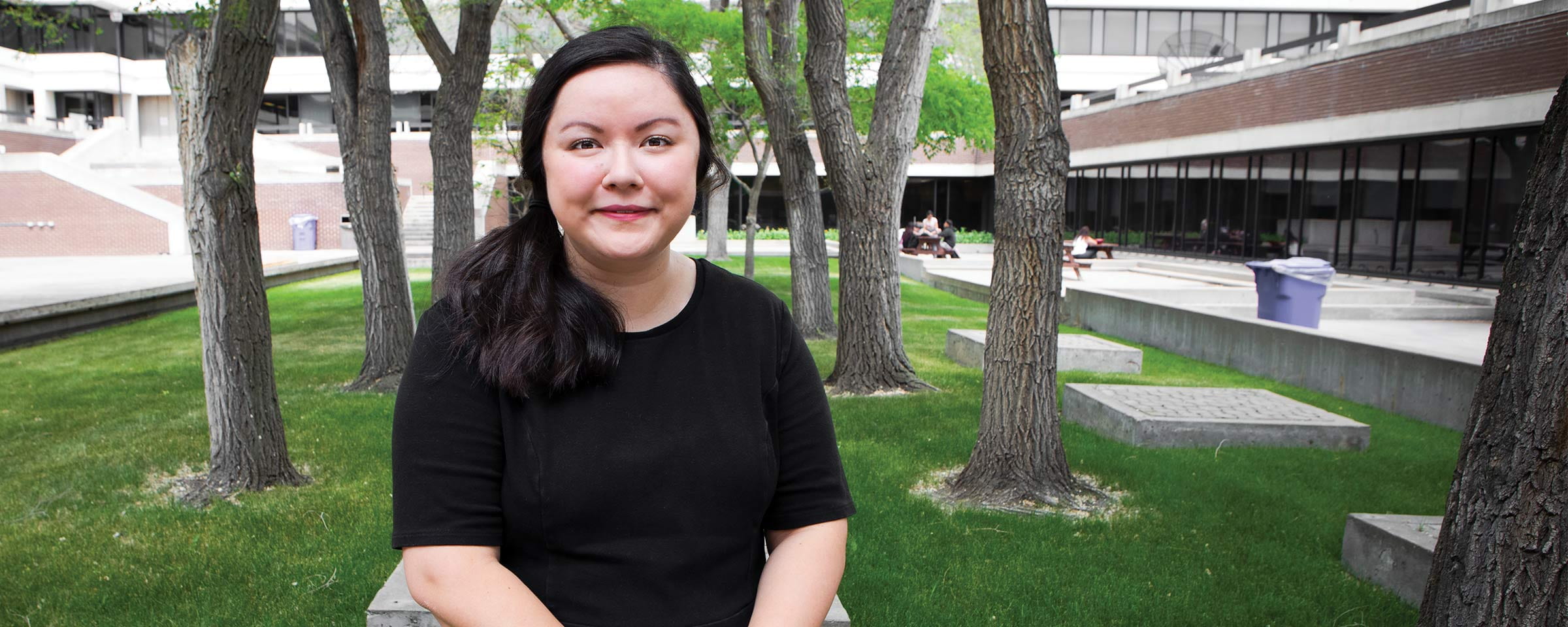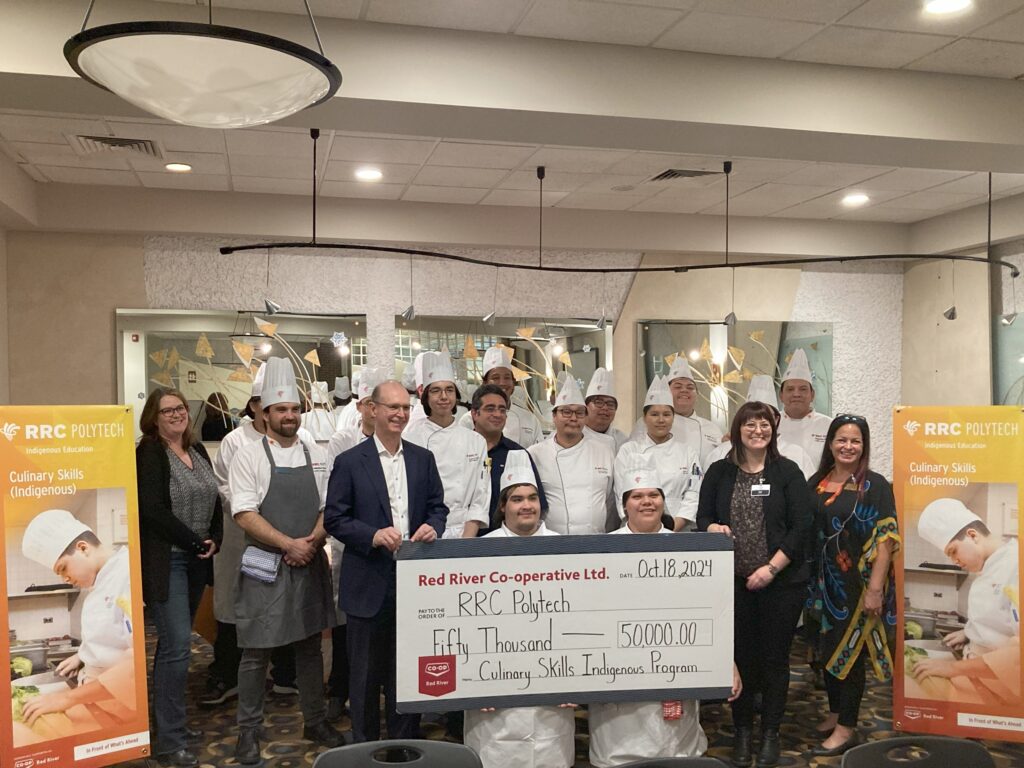Red River Co-op’s Support for Indigenous Culinary Education Celebrates Heritage, Creates Opportunities
At RRC Polytech, culinary education extends beyond recipes—it builds connections to heritage, self-confidence, and economic reconciliation. Thanks to a $150,000 donation from Red River Co-op, the College’s Culinary Skills (Indigenous) program is creating more avenues for students to develop essential skills, explore traditional ingredients and techniques, and engage in impactful culinary research.
“Our contribution to RRC Polytech is rooted in Red River Co-op’s commitment to fostering local talent and supporting economic growth within the communities we serve,” said Craig Gilpin, CEO of Red River Co-op. “We recognize that Indigenous communities may face systemic barriers to education and employment, and we believe it’s important to help address these inequities by creating meaningful opportunities today. By supporting Indigenous students in culinary training and research, we hope to see graduates bring their skills and knowledge to their communities, drive local innovation, and inspire a more inclusive and culturally enriched culinary industry.”
The program’s class size has grown to 15 students, increasing demand for resources. Red River Co-op’s donation will help meet these needs, said Tracy Brant, Associate Dean, School of Indigenous Education at RRC Polytech. “It’s about ensuring every student has access to tools, ingredients, and experiences that connect them to cultural roots while equipping them for successful futures in culinary arts.”
Culinary Instructor Chef Patrick Anderson sees this expansion as a chance to teach more students about the origins and traditions of Indigenous food. With the donation, the College can support the students in purchasing costly ingredients like game meats or equipment like dehydrators and smokers, so students can prepare traditional foods like pemmican and jerky. “This isn’t just about recipes,” he said. “It’s about grounding students in their cultural roots and the history of food on the plains.”
Beyond the kitchen, Red River Co-op’s support reduces financial barriers for students by covering essentials like chef coats, knife kits, laptops, and even bus passes—critical items often not funded by community grants.
That’s encouraging news to Keegan Thomas, a first-year student from Roseau River Anishinabe First Nation. He said the donation will directly benefit he and his peers. “Having funds available to help purchase equipment we need makes a huge difference. Right now, we’re often sharing things like scales, which can slow us down. It could also help cover costs for bus passes, which makes getting to class easier.”
Keegan, who initially considered a career in lab research, looks forward to the culinary research opportunities made possible by Red River Co-op’s support. The gift will fund bursaries that enable him and other students to participate in culinary research projects hosted by RRC Polytech’s Prairie Research Kitchen. These projects allow students to explore Indigenous ingredients, scale recipes, and address issues like food waste.
“I think every cook is a bit of a research scientist, fine-tuning recipes as they go,” said Anderson. “The Prairie Research Kitchen lets us perfect recipes down to the molecule, and this donation will allow us to explore unique, captivating Indigenous ingredients, bringing students even closer to their culinary heritage.”
Mavis McRae, Director of the Prairie Research Kitchen, highlights the broader impact: “We’re encouraging Indigenous students to use their culinary skills to create new food products. By learning to preserve and utilize local resources, they gain the skills to create sustainable, self-driven food solutions that honour their heritage, while contributing to food security and economic sovereignty within their communities. These projects are part of the College’s larger commitment to economic reconciliation and resilience.”
The ultimate value of Red River Co-op’s generosity is the confidence it instills through the opportunities it creates to nourish others, says Anderson. “When students see their dishes enjoyed by people at events where they get to share their story, it reinforces that their skills are valuable and their heritage matters. It builds confidence and reminds them that they’re on the right path.”

